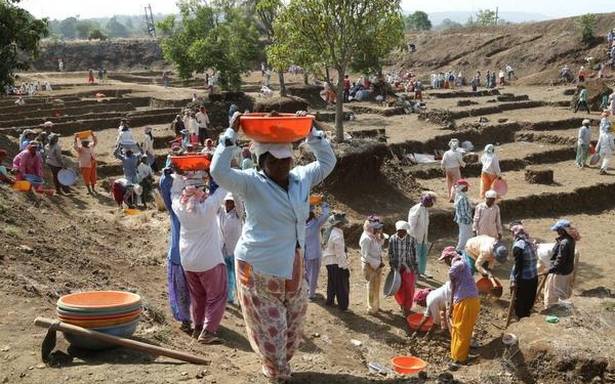In a development that will hit the livelihood of rural workers for a fortnight in the midst of the COVID-19 pandemic, the State government has stopped work under the Mahatma Gandhi National Rural Employment Guarantee Act (MNREGA). While the daily earnings have come to a standstill since Monday, when the lockdown commenced, alternatives are being chalked out still.
The decision will hit about one lakh households across the State who would otherwise have received employment during this period. In fact, about 10,000 migrant workers who returned to their villages had also been issued job cards for employment.
It is learnt that the decision to stop work was taken on Sunday after a videoconference meeting between the zilla panchayat chief executive officers and the Commissioner of MGNREGA in the Department of Rural Development and Panchayat Raj.
“Messages were sent to gram panchayats to stop work between May 11 and May 24 when the lockdown would be in place. Payments were directed to be made for the work already undertaken,” a source said.
MGNREGA is one of the important sources of employment in rural areas, especially in North Karnataka region which has seen heavy migration of people to urban centres in search of employment avenues.
Principal Secretary of RDPR L.K. Atheeq said, “The Union government, in its lockdown guidelines notification, has identified MGNREGA work as a restricted activity. So it is not permitted and we had to stop it,” he said.
Government sources said that alternatives were being formulated in the RDPR Department, including the supply of cooked food to vulnerable households through the task force set up at the gram panchayat level. “We are trying to get it approved early because we had a short window before the decision was made,” a source said.
Meanwhile, the Gram Seva Sangha has criticised the decision, saying that while all construction activities have been allowed, MGNREGA work has been stopped. “At a time when thousands of migrant families are returning to their villages, this will have a serious impact in rural areas. If the work had to be stopped, financial help should have been given to the families first,” he said.
Source: Read Full Article

